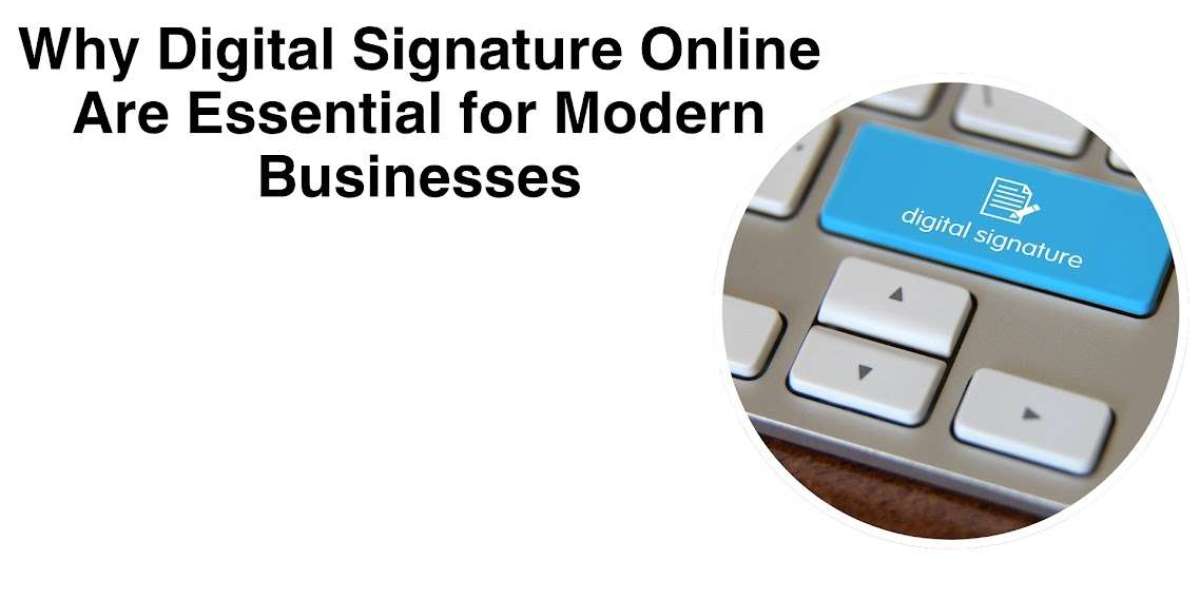In today’s fast-paced digital environment, businesses must keep up with evolving technologies to stay competitive, secure, and efficient. Among the essential tools driving this transformation is the digital signature online. Far beyond being a replacement for handwritten signatures, digital signatures validate identity, ensure document integrity, and enable seamless digital transactions. No matter the size or industry, every business can benefit from implementing an online digital signature system.
This article breaks down the importance of digital signatures, their legal standing, business advantages, industry applications, and how to get started with one easily.
1. What Are Digital Signatures?
A digital signature is a cryptographic tool that authenticates digital documents or messages. Unlike basic electronic signatures (like scanned signatures), digital signatures use encryption algorithms and a pair of keys (private and public) to verify both the origin and the integrity of the document.
They are legally recognized in many countries and are often more secure than traditional methods of signing.
2. Legal Recognition of Digital Signatures
Digital signatures are fully recognized by law in several countries when they meet prescribed standards:
India: Valid under the Information Technology Act, 2000
United States: Covered by the ESIGN Act
European Union: Governed under eIDAS Regulation
Because of this legal recognition, digitally signed documents carry the same weight as physical ones, minimizing the risk of legal disputes.
3. Improving Operational Efficiency
Manual signing and document handling slow down workflows. Digital signatures eliminate these bottlenecks by:
Speeding up approval processes
Enabling real-time remote signing
Supporting instant document sharing
Allowing seamless integration with existing tools like CRM, HR, and ERP platforms
Faster execution leads to improved productivity and better client servicing.
4. Cutting Business Costs
Implementing digital signatures can help businesses reduce a variety of costs:
Printing and mailing expenses
Storage space and filing supplies
Time spent in manual tracking and chasing approvals
Plus, it supports a paperless office, making operations more sustainable and eco-friendly.
5. Enhanced Security and Document Integrity
In an age where data breaches are rampant, digital signatures offer built-in protections:
Authentication: Confirms the signer's identity
Data Integrity: Detects any tampering after signing
Non-Repudiation: Prevents the signer from denying their involvement
These features are supported by encryption and managed by Certification Authorities (CAs).
6. Meeting Regulatory Requirements
Industries such as banking, healthcare, law, and finance must meet strict compliance regulations. Digital signatures support compliance with:
GDPR (Europe)
HIPAA (U.S. healthcare)
IT Act (India)
ISO 27001, SOC 2, and other global data security standards
They help demonstrate that your business takes compliance and risk seriously.
7. Industry Applications of Digital Signatures
Digital signatures are used across nearly every sector:
Banking & Finance: Loan agreements, internal approvals, KYC
Healthcare: Medical records, insurance claims, prescriptions
Legal: Contracts, affidavits, NDAs
Real Estate: Lease agreements, sale deeds
Government: E-tenders, licenses, RTI responses
Education: Admissions, HR forms, exam documents
No matter the use case, they streamline workflows and create traceable digital trails.
8. Empowering Remote and Hybrid Teams
Digital signatures are invaluable in today's remote-first world:
Staff can sign from anywhere, anytime
Supports cross-border collaboration
Keeps projects and contracts moving without delays
Fully mobile-friendly
This flexibility ensures businesses remain agile in changing work environments.
9. Elevating Customer Experience
Digital signatures improve customer satisfaction by:
Providing quick, hassle-free document processing
Offering secure and transparent interactions
Supporting mobile and remote accessibility
Reinforcing trust with visible audit trails
Your clients will appreciate the convenience and professionalism of digital dealings.
10. How to Choose the Right Digital Signature Service
Before choosing a provider, ensure it checks these boxes:
Legally compliant with national and international laws
Highly secure, using encryption and tamper-proof tech
Easy to use for both staff and clients
Compatible with your existing tools and systems
Scalable as your business grows
Certified by a trusted CA (eMudhra, Sify, Adobe Sign, DocuSign, etc.)
11. Future Trends in Digital Signatures
The future is even more promising with emerging technologies:
Blockchain for decentralized verification
Biometric authentication for added security
AI-based identity checks
Smart contracts that auto-execute on a digital signature
These innovations will make digital signing even more intelligent, secure, and integrated into everyday workflows.
12. Quick Guide: How to Get Your Digital Signature Online
Step-by-Step Process:
Visit Our Website: Start the application process.
Fill Out the Form:
Choose user type: individual or organization
Pick certificate type: signing only or signing + encryption
Choose validity period
Enter personal/contact info
Agree to the terms and submit
Token Option:
Need a USB token? Select accordingly
Make Payment:
Choose from net banking, UPI, card, etc.
Review and Submit:
Confirm all details are accurate
Receive Certificate:
A digital signature will be issued and sent via a token
Also read:- What is emudhra?
Conclusion
In today’s digital economy, digital signatures are no longer optional—they’re a necessity. They help businesses operate faster, safer, and more cost-effectively while staying compliant and improving customer experience.
By adopting a secure, legally recognized digital signature solution, your business positions itself for long-term success, resilience, and trust in the digital age. Whether you're a startup or a global enterprise, now is the time to digitize your signing process and future-proof your operations.








